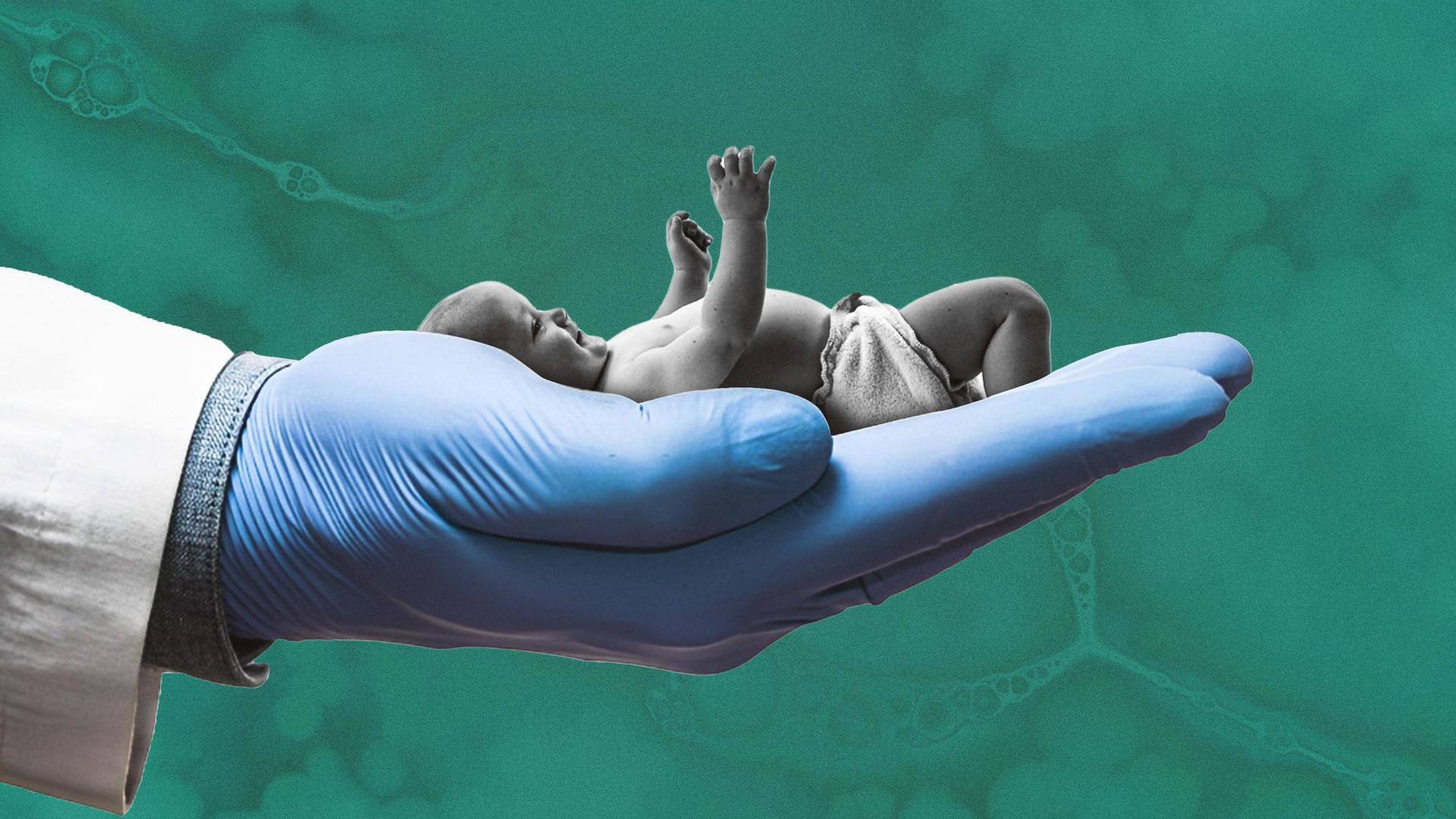
IVG: Tech that can turn skin cells into babies
What's the story
It's amazing what science can do these days. In vitro gametogenesis (IVG) is a remarkable reproductive technology that can create babies from skin cells! It has the potential to change the lives of many who face infertility challenges or can't conceive naturally, including same-sex couples and postmenopausal women. Let's delve into understanding the science behind this game-changing technology for the future of parenthood.
Context
Here's what our expert says
In vitro gametogenesis is the process of reversing a mature adult specialized cell like a skin cell to either sperm or ovum which can then be fused to produce an embryo. It's a breakthrough in reproductive medicine because it was thought to be impossible before. There remain a number of ethical and legal questions that need to be answered before it becomes clinical practice.
Possibilities galore
IVG would allow nearly anyone to become a biological parent
This technology can help same-sex couples have children who are biologically related to both parents. It can enable single individuals to procreate without another person's genetic contribution. IVG can also allow groups of more than two individuals to procreate together, resulting in children who are genetically related to all the individuals involved. A game-changer for potential parents, IVG could transform the idea of family.
Information
IVG is not the same as IVF
IVG should not be confused with in vitro fertilization (IVF), which has been helping couples with fertility for decades. While IVF is a well-established process, IVG is a new reproductive technology that is still in the research and development phase.
IVG
What's the science behind this assisted reproductive technology?
IVG can produce sperm and egg cells in a lab from almost any adult cell. This is done by using skin and blood cells to reverse engineer a special type of cell called induced pluripotent stem cells (iPSC). iPSCs are adult cells that have been genetically modified to an embryonic state. That means they can be used to produce eggs and sperm for reproduction.
Progress
Scientists have made significant strides in the development of IVG
In 2016, Japanese researchers successfully created viable eggs from the skin cells of mice and implanted them into female mice, resulting in healthy baby mice. The mice were healthy and able to have offspring of their own from the grown egg cells. In 2018, another researcher based in Japan was able to grow an early-stage egg from human stem cells derived from blood.
Animal preservation
IVG may help preserve endangered species
IVG also has the potential to help protect endangered animal species by creating viable egg and sperm cells from stored tissue samples. This is important for animals with low reproduction rates, as it allows their genetic material to be saved without the need for live animals. It could also be helpful in bringing back extinct species whose tissue samples are preserved by scientists.
Concerns
The ethical concerns of IVG
The ethics related to IVG are complicated, as it raises concerns about embryo farming and the commodification of reproduction. IVG also has the potential to enable direct gene editing, which could have unknown consequences. And there's a risk of unauthorized use of biological material, like hair or skin cells, to generate embryos, which raises crucial questions about privacy and consent.